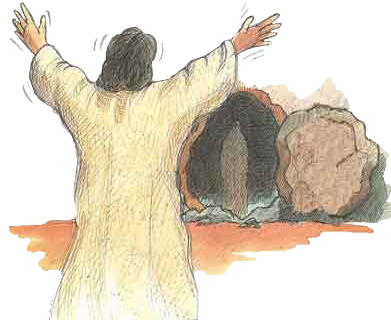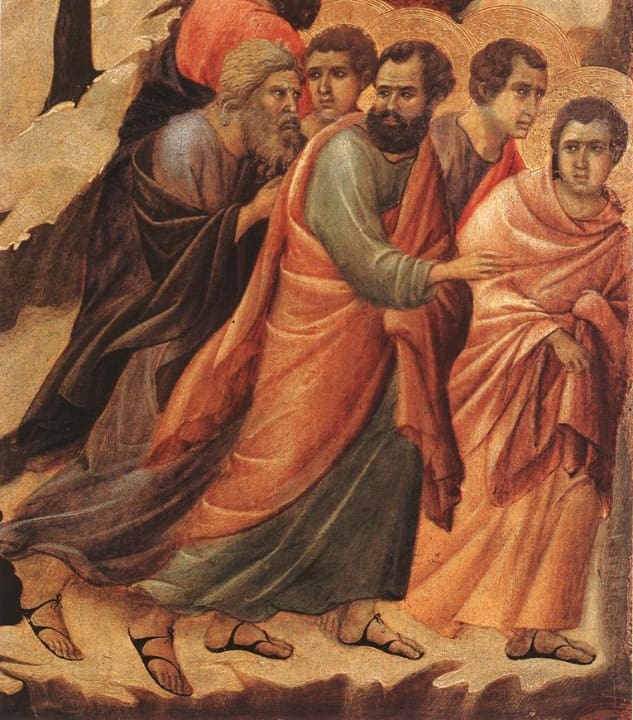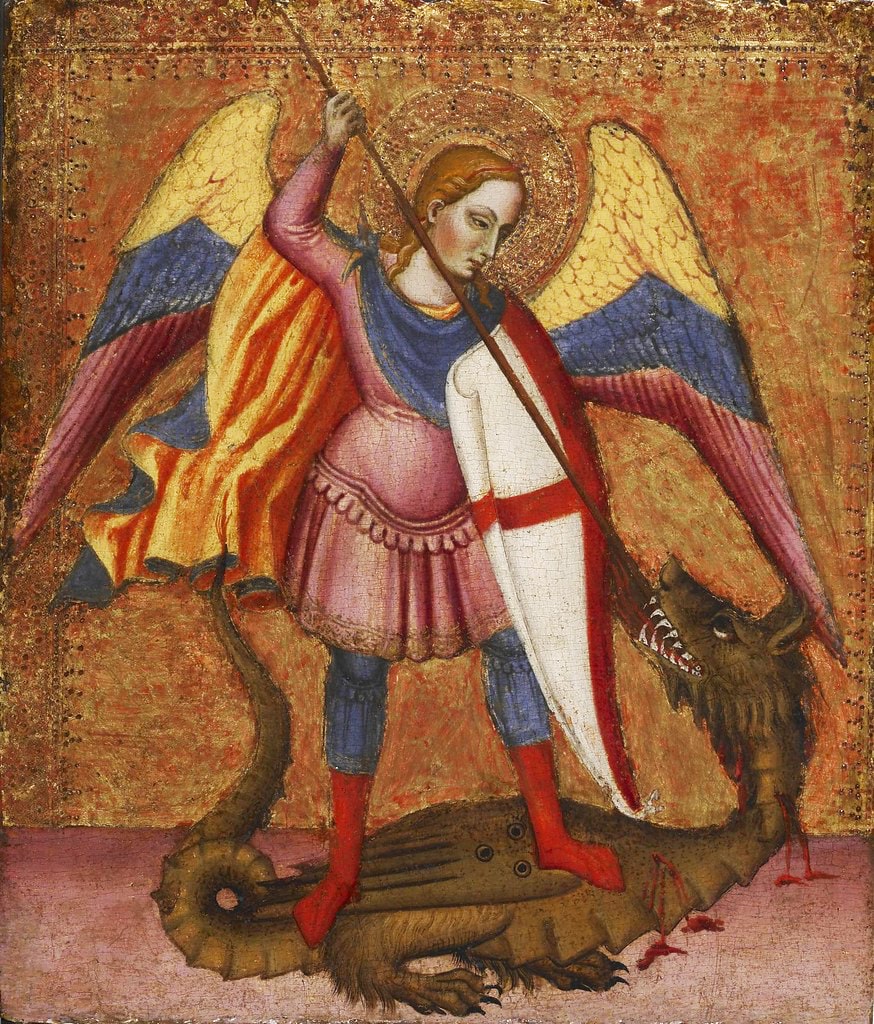
Who is He?
The Year of the Rabbit
 According to the Chinese lunar calendar, we have entered the Year of the Rabbit, considered an auspicious sign. Though not a big believer in astrology, I have to admit giving it some credence since the Year of the Rat, of loathsome memory, certainly fulfilled its namesake’s low reputation.
According to the Chinese lunar calendar, we have entered the Year of the Rabbit, considered an auspicious sign. Though not a big believer in astrology, I have to admit giving it some credence since the Year of the Rat, of loathsome memory, certainly fulfilled its namesake’s low reputation.
The Rabbit is associated with good fortune, health, abundance, cleverness, caution, cordiality, and peacefulness. Considering their large bright eyes, ridiculously oversized ears and tiny twitching noses, their seemingly magical ability to appear and disappear in an instant, it sounds quite delightful. Hooray for the gentle, fuzzy bunny! (Leaving aside, for the moment, the damage he can do: consider the story of Peter Rabbit from Mr. McGregor’s point of view, as the farmer’s vegetable crop steadily disappears!)
When in Doubt, Run!
With few and feeble defenses, Rabbit must rely on his senses as early warning devices, thus the big ears and eyes and perpetually active nose, sniffing for any scent of trouble. His strong hind legs, quick-as-a-bunny reactions, and extensive underground burrow system are his recourse when danger threatens. His motto might be: “when in doubt: run and hide.”
 Expert in maintaining his personal safety, Rabbit isn’t the sort of companion you’d want beside you in a battle; when confronted by an enemy, he’ll turn tail and run. Not that Rabbit is a coward, only conscious of his helplessness; fleeing because the alternative might be rabbit stew.
Expert in maintaining his personal safety, Rabbit isn’t the sort of companion you’d want beside you in a battle; when confronted by an enemy, he’ll turn tail and run. Not that Rabbit is a coward, only conscious of his helplessness; fleeing because the alternative might be rabbit stew.
In short, while having many good points, Rabbit also has some serious limitations. Soft, silent, peaceful, he does not labor or spin, but eats what he does not plant; cute but unreliable, when danger threatens, Rabbit most assuredly won’t have your back.
Personality Profiles
If we consider those aspects as representing the character of the year — its personality, so to speak — what might that mean? Probably almost anything or nothing at all: believers will see parallels immediately, skeptics will deny any similarities to people or events.

That’s how we human beings function: we are blessed with more imagination than wisdom, generally speaking. The world is our Rorschach test: we see more than meets the eye (and often less — if it’s what we don’t want to see). Sometimes the images are shaped by our fear, or our hope, our history or our dreams of the future. Sometimes it does become predictive — as what we see is what we get, because it’s what we’re expecting to see.
We can even, subconsciously or not, contribute to the outcome we anticipate. Sometimes for good, sometimes for ill. We do need to be mindful and prayerful of our thoughts and words and deeds.
Reflections and Distortions
"For now we see as through a glass, darkly;”
~ Paul's First Letter to the Corinthians 13:12

The same might be said of our interpretations of Scripture, our understanding of Who God is, and what God does, and what is required of us. As we know, those fields are vast and widely disparate; from the first Christians held differing views of nearly every aspect of our faith. We still do. [So I guess points for consistency.] Is God in the still small voice — the whisper of potentiality and peace, or the One who thunders, “I kill and I give life; I wound and I heal; and no one can be rescued from My power”? Is Jesus meek and mild, or One who came, “Not to bring peace, but a sword” (Matthew 10:34)?
William Sloane Coffin famously remarked, “The Bible is like a mirror, when an ass peers in, don’t expect an apostle to peer out.” Sharpish as they are, his words ring true: how do we enter into conversation with the Bible, and with the Gospel — our primary text — in particular?
Are we sitting softly with the Spirit, seeking wisdom and understanding? Or are we looking for evidence to support our prejudiced (pre-judged) certainties, mulishly unwilling to be taught? If the message we hear is difficult, will we listen and reflect, or go skittering away like a hare pursued by hounds?
More Than
Now to Him who is able to do immeasurably more than all we ask or imagine, according to His power that is at work within us, to Him be the glory in the church and in Christ Jesus throughout all generations, forever and ever. Amen.
~ Ephesians 3:20-21
God is more than we imagine, more than we can imagine. More than the God of our Sunday School classes, just as Jesus is more than one who “loves the little children.”
 The Eternal, the Inexpressible, Shield and Defender, Giver of Life, Almighty… Our human understanding cannot fathom All that God is, and so we divide the divine into manageable aspects, picking and choosing the most comforting, the most in line with our needs or desires. This is not unreasonable; it has been truly said that “no one may look upon the Face of God and live” — for the Face would be the full revelation, the entirety of Godself blazing forth: we would be overwhelmed, overcome, dissolved, burnt up like a cinder in the intensity of That Which Is.
The Eternal, the Inexpressible, Shield and Defender, Giver of Life, Almighty… Our human understanding cannot fathom All that God is, and so we divide the divine into manageable aspects, picking and choosing the most comforting, the most in line with our needs or desires. This is not unreasonable; it has been truly said that “no one may look upon the Face of God and live” — for the Face would be the full revelation, the entirety of Godself blazing forth: we would be overwhelmed, overcome, dissolved, burnt up like a cinder in the intensity of That Which Is.
Un-Limited
But in our acts of divine dissection, we narrow and confine the Reality; God becomes for us only what we allow Him to be: a domesticated Almighty who does not alarm or awe us. We forget that God IS, and cannot be controlled or contained, we forget God’s astonishing, unimaginable power and potential. We are impoverished in our faith and our hope.

God is a friend, a lover, an advocate, a mother, a father; merciful, compassionate, wise, gracious; God is also a fierce warrior who will march into battle, a staunch defender who will avenge the hurts and wounds and deaths of His people, He lifts up and casts down; God will not be mocked or manipulated, bribed or coerced. God is loving, patient, merciful, kind and good, and is much more than that. Don't underestimate the Almighty.
A Jelly Belly® Jesus
I recently had a conversation with a man who has given up on church and who has, sadly, lost any sense of meaning in the Christian faith. Jim says he’s through with what he described as “Jelly Belly® Jesus”: the champion of the flavor-of-the-month social cause. Beyond that, the Lord is just “a decent guy who said we should be kind to one another.” Only that, and no more. In short: a tame, tedious, domesticated Jesus. There is simply no there there.
 Some of us never move beyond our Sunday School image of the Lord; the decent guy who said we should be kind to one another; a wise teacher who fed the hungry, healed the sick, rode into Jerusalem on a donkey, and then went, passively, to his execution. That was sad, but it all turned out all right in the end, because on Easter God restored him to life.…. and we get to eat jelly beans and chocolate bunnies!
Some of us never move beyond our Sunday School image of the Lord; the decent guy who said we should be kind to one another; a wise teacher who fed the hungry, healed the sick, rode into Jerusalem on a donkey, and then went, passively, to his execution. That was sad, but it all turned out all right in the end, because on Easter God restored him to life.…. and we get to eat jelly beans and chocolate bunnies!
And, as Jim and others would say: “So what?” It’s a fair question. What does any of that have to do with us? Jesus as a political advisor, a diet coach, a nice guy? Phooey. How does his life affect our life, our daily choices and challenges? What influence can a nice guy have in the way we deal with stress and sadness, with our dreams and desires, with love and hate and frustration and fear, with sickness and health, hope and joy, families and friends, with the condition of our world and the state of our souls?
Christianity 1A
As Christians, we are called upon to see Jesus — to believe in Jesus as something more than a decent fellow who said nice things. He is our teacher and guide, but he is more than that. He was crucified by Pontius Pilate, suffered, died, and was buried. But he is more than that.
Jesus is the true Light, which is much more than "sweetness and light."

Jesus is God’s son, ambassador, and recruiting agent, who wields the power and authority of His Father. That “meek and mild” business holds for his approachability, his compassion for us, but not for his strength of character; Jesus was not timid or docile, but a Man of courage and daring.
Proclaiming the Good News of God’s love and mercy throughout the land, he fearlessly confronted the mad, the bad, the grieving and the hopeless; no disease or contagion repelled him, no illness was too severe to heal, no demon too fierce to expel. Even the walls of death shattered at his command.
Jesus stood firm and unyielding in the face of his enemies’ accusations, abandoned by his friends, abused by his captors. Full knowing the agonizing death that awaited him, he did not curse or condemn, but faced the Cross with confidence in God’s power.
Christ in Majesty
 And Christians say that that was not the end, but a transition point. Jesus suffered and died on the cross and was buried, and arose as the Christ; the living proof of the Power of the Almighty to do great things, the ultimate Policy Statement from Above: this Man speaks for Us.
And Christians say that that was not the end, but a transition point. Jesus suffered and died on the cross and was buried, and arose as the Christ; the living proof of the Power of the Almighty to do great things, the ultimate Policy Statement from Above: this Man speaks for Us.
"He is not dead, but lives, now and eternally.”
More than a Vote of Confidence, Christ’s resurrection was an act of mercy — to us. We were given a second chance to see, when we had been blind; to hear, when we had been deaf; to understand, when we had been dumb and deluded.
Choices and Consequences
Our Lord was not a martyr to niceness, he wasn’t crucified because he was kind and did good things, or for socializing with gamblers and whores and drunks, or for healing on the Sabbath. His final suffering was evidence of our captivity to earthly powers: our acquiescence to fear and force; our complacency and our willingness to go along to get-along; our obedience to Caesar over our allegiance to God.
Then all the disciples abandoned him and ran away
(Matthew 26:47-56) like frightened rabbits.
 We abandon Christ every day when we give over our souls to the worldly powers and principalities; when we are seduced by glib lies and pretty faces, cowed by taunts and threats and tyrants, silent while God is mocked and humanity degraded. Forsaking prayer, bereft of hope, Jesus is to us merely a nice fellow, rather than Lord of our Lives, the Son of God, Savior.
We abandon Christ every day when we give over our souls to the worldly powers and principalities; when we are seduced by glib lies and pretty faces, cowed by taunts and threats and tyrants, silent while God is mocked and humanity degraded. Forsaking prayer, bereft of hope, Jesus is to us merely a nice fellow, rather than Lord of our Lives, the Son of God, Savior.
Those who have been called to be Christians say — we say — that Jesus is our Lord. If he is that to us, it should show forth in the living of our lives. We are to be compassionate and caring as He taught us, but more than that.
We are also to be as firm and faithful in our allegiance to God as He was, as courageous in our proclamation of the Gospel as He was, as bold in confronting the wicked and comforting the weary, as certain of the Divine ability to strengthen, uphold, and empower, to bring peace and healing and hope as He was — for we have been assured that we can do “all that He did, and more” (John 14:12).
The Question
We can do all that he did and more? Hmmm. That’s quite a claim. Amazing. Disturbing. Troubling. Do we dare to even try? The idea calls our faith — our theology — into question. Who is this Jesus?
If Jesus is Christ, Son of God, Risen Lord, “I can do all things through Him who strengthens me;” if He is not, if he is just a nice guy who said good things….
I wonder.

For long ages, generation after generation of faithful, believing Christians have done great things, marvelous things, putting their trust in Jesus Christ the Lord, whom the wicked fear and tyrants despise.
Energized, empowered, determined, daring, hopeful — confident in the power and authority of the Lord Christ, in His life they had life. They believed in Him; trusting in the Gospel he proclaimed, relying on the God he revealed. For them, nothing was impossible.
As for us? We, who call ourselves Christians, should ask ourselves, as Jesus asked His first disciples:
“What about you, who do you say I am?"
~ Matthew 16:15
May the Eternal Almighty fill us with the Spirit of hope, courage, and great daring, through Jesus Christ our Lord. Amen.
Deborah ✝
Suggested Spiritual Exercise
The Lord is my light and my salvation; whom shall I fear? The Lord is the stronghold of my life; of whom shall I be afraid?
~ Psalm 27:1-2
Jesus looked at them and said, For a person on his own, this is impossible, but with God all things are possible."
~ Matthew 19:26